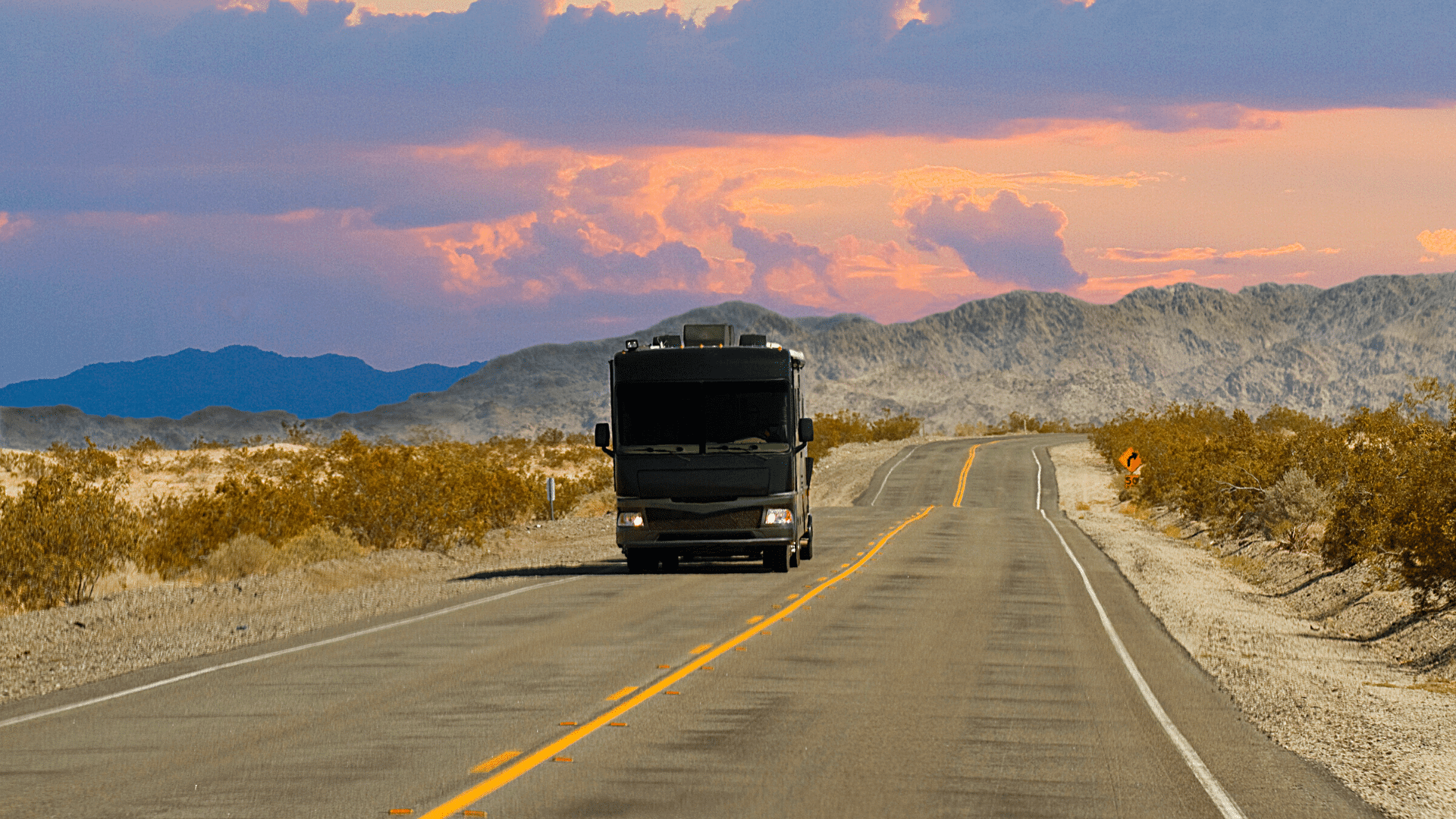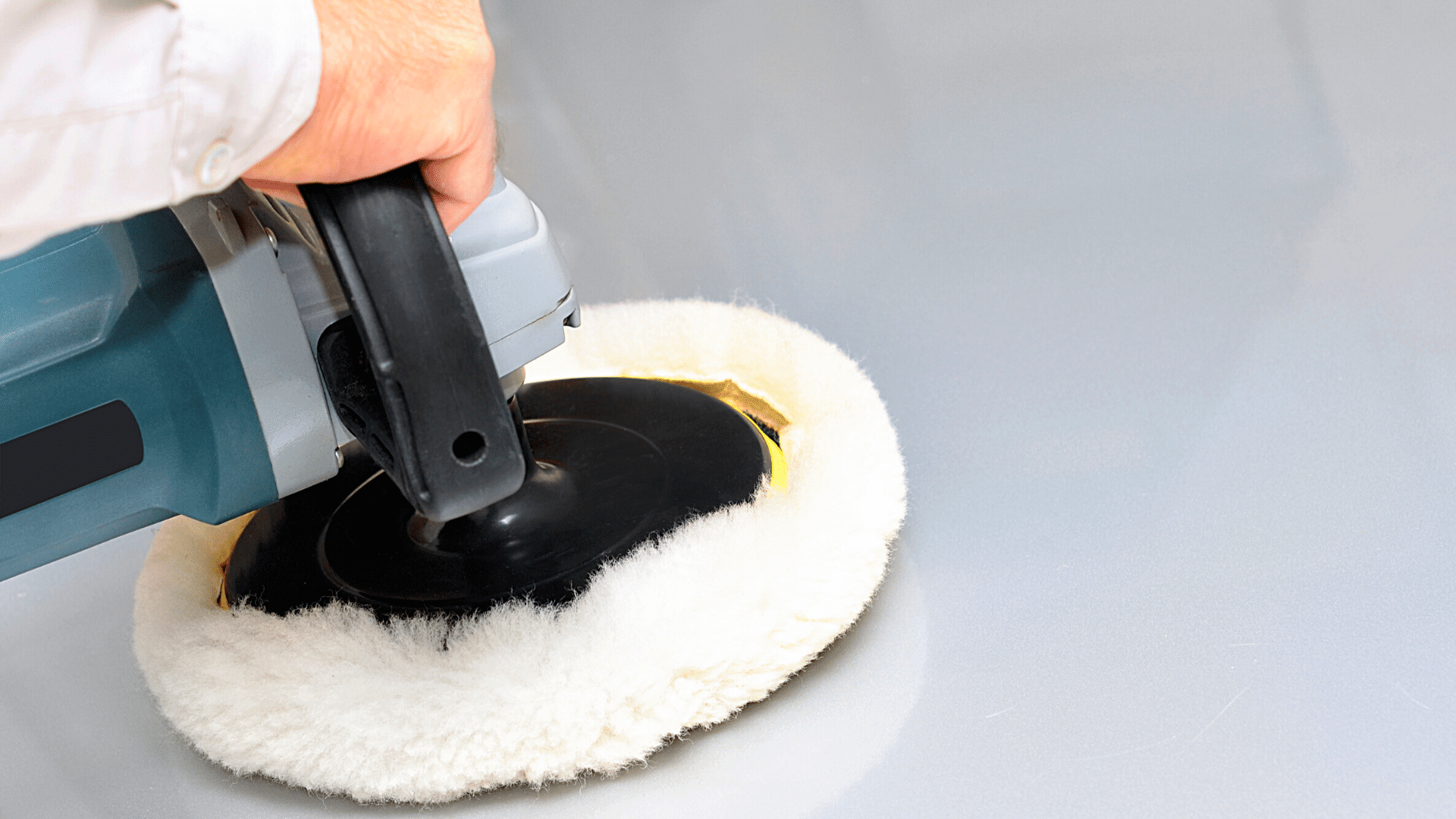Table of Contents Show
So, you’re ready to enjoy the adventure and ease of traveling in an RV. That is exciting news! We know you’re going to love it. But being a beginning RV purchaser can feel like a daunting task. With all the options out there, you may wonder where to even start. If you want to know how to buy an RV but you have no idea what to do first, you’ve come to the right place.
Decide on the type of RV
The first step you need to take when buying an RV is deciding on the type. There are motorhomes including Class A, Class B, Class C, and Super C. There are also fifth wheels and travel trailers to choose from.
Before you make a purchase, you need to decide which of these models works best for you. Maybe you’d prefer a travel trailer or a fifth wheel because the thought of driving a motor home terrifies you. Or perhaps you would enjoy the ease of having everything contained in one vehicle like a motorhome.
You should also think about the vehicles you already have. For example, if you’ve already got a large pickup truck, a fifth wheel might make sense. But if you have a vehicle that would be perfect as a tow car, maybe you should go the motorhome route instead.
Price can also play a role. You’re likely to spend much less and need a smaller truck if you go the travel trailer route. Motorhomes and fifth wheels, especially the newer models, are much more expensive.
Any of the RV options can be perfect as long as it is the perfect fit for you.
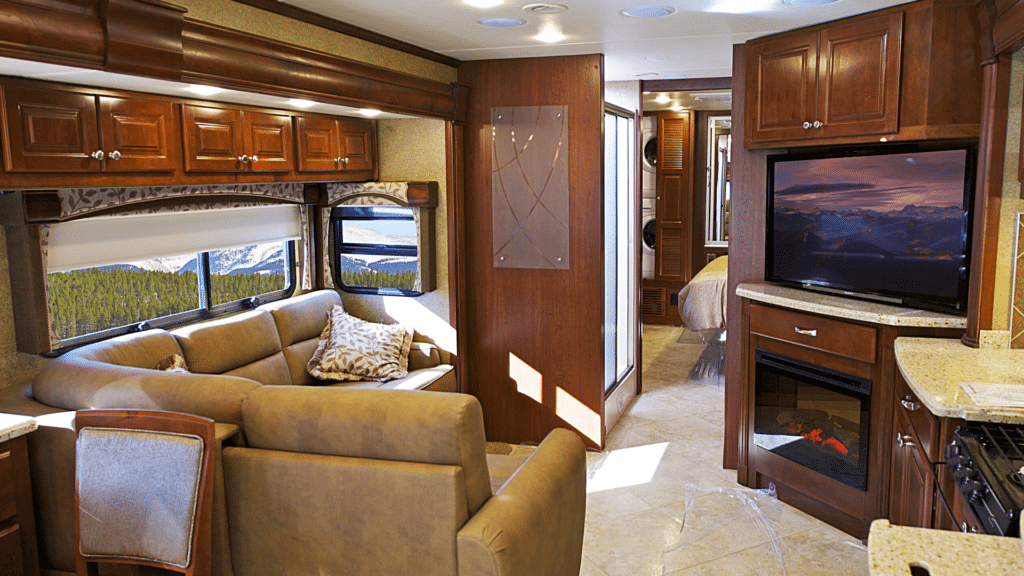
Decide on the floor plan of the RV
Part of your decision on the type of RV might depend on how much space you want (or don’t want because remember, you have to drive all that!) If you want more room and a more open floor plan, a motorhome or fifth wheel will typically afford that.
Once you decide how long of a rig, you would like to get, you need to decide on a floor plan. To do this (and to help with deciding what company to buy from) we recommend going to an RV show. This gives you a chance to look at multiple floor plans from a range of RV manufacturers in a short amount of time.
The floor plan will depend on your needs. If you have kids or need an office on the road, you may want to get a floor plan that offers an extra room. Similarly, the more people you have, the more beneficial it is to get a floor plan with a second bathroom or a large kitchen.
Different floor plans also offer different amounts of storage space. If you’ll be full-timing in your RV, you will want as much storage as possible; trust us! Some RVs also have opposing slides that open up to make your space feel much bigger. So be sure to pay attention to slide number and layout to pick the best floor plan for you.
Decide on the manufacturer
Sometimes this can go hand in hand with the floor plan, because your perfect floor plan may only be available from a few manufacturers.
When you think about the big picture, you will want to do your research on top manufacturers. This ensures you will get a quality RV that will last for years to come. Make sure you buy an RV from a company that doesn’t have lots of issues either mechanically or functionally on the interior. This will save you in the long run on repair costs.
Decide to buy new or used RV
Next up when learning how to buy an RV is deciding whether you want new or used. While it is fun to get something brand new, a new RV will cost you a lot more money. It will also depreciate rapidly, meaning you may owe more than the RV is worth.
If you have a large budget and/or can put down a big down payment, a new RV could be nice. You will start with zero miles, no wear and tear on the interior, etc. But know that you’ll be paying more for these bonuses.
A used RV can be a better investment price-wise, but you’ll want to do your homework to find one that is not run down or experiencing mechanical issues. If you end up having to do lots of repairs, used will end up costing you. If you do go the used route, consider paying for an RV inspection before signing on the dotted line.
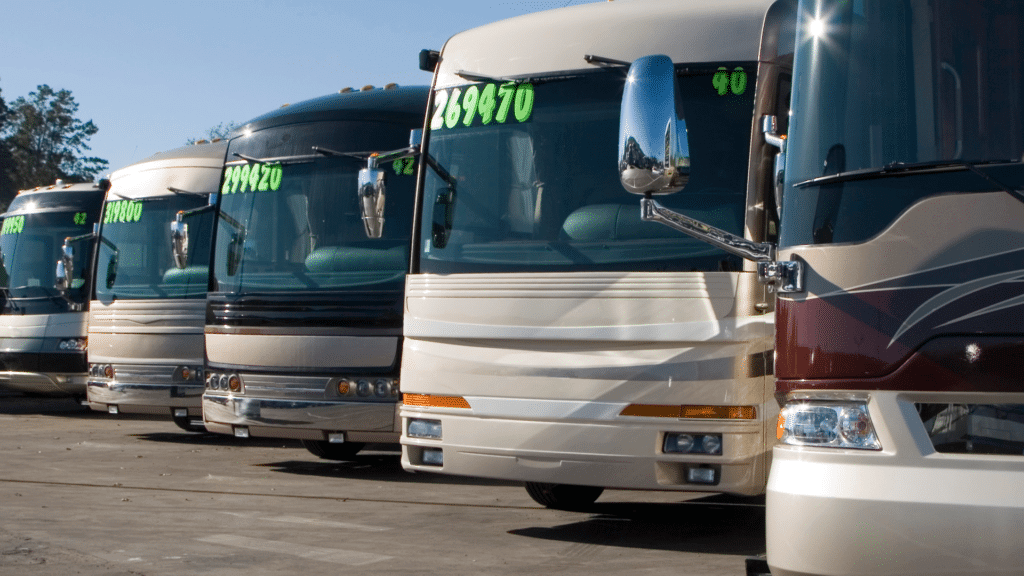
Decide on the Dealership
When it comes time to buy an RV, you’ll most likely be buying from a dealer. Some dealers carry only a few makes and models of RV, while others sell a wide range. You may also have an easier time finding a new or used model (depending on what you are looking for) by going with a certain dealer.
Before you commit to a dealer, read some online reviews to ensure they are a good business to deal with. Some places will make repairs before you buy or for a short time after your purchase, whereas others won’t. It is to your benefit to find an honest dealer with good reviews, so you don’t have to worry about buying a lemon.
Negotiate Price
Once you have done all your homework, don’t forget to negotiate the price. Dealers will always have a huge markup on the price. While they have to make a living, there is usually a lot of wiggle room in the price.
By negotiating on a new or used RV before buying it, you might save thousands of dollars. So don’t make the newbie mistake of assuming the sticker price is the price you must pay.
Financing
When you are ready to buy an RV, you will most likely need to finance it. If you are one of those people who can afford to pay cash for an RV, then carry on to the next section. But for most of us, financing is a necessary evil.
The RV dealer may offer financing, but you can also shop around beforehand to find the best rates. Don’t forget to check out your local credit union or Good Sam RV loans. These options might give you a lower interest rate than the dealer.
It is also smart to get pre-approved for financing so you know exactly how much you can spend and you won’t have any trouble completing the purchase.
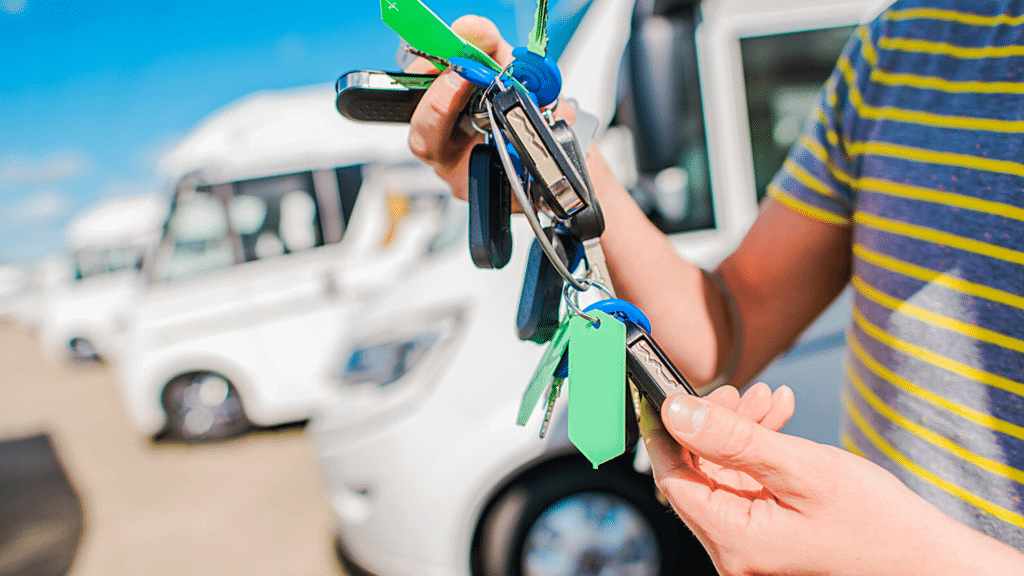
Delivery and Walkthrough
Once you have bought your RV, you will either have the dealer deliver it to you or pick it up on sight. Before you drive away, they will walk you through the RV.
They’ll likely give you an overview of the basic features and operating mechanisms. This is also the time to double and triple check to make sure everything is in working order. If the dealer agreed to make any fixes before purchase, make sure they took care of everything. Because, in most cases, once you drive it off the lot, it is too late.
If you have any continuing concerns, discuss them with the dealer so they resolve them before the transaction is complete.
Other Expenses to Consider
Now that you know how to buy an RV, don’t forget about other associated costs. You don’t want to spend so much on your RV that you can’t afford to actually use it.
Other costs you will incur as a new RV owner include storage, insurance, registration, fuel (those things do NOT get good gas mileage), regular and sometimes unexpected maintenance, and campground costs.
You also must spend a chunk of money on accessories that you need to get started. For example, you’ll need connections for electricity, water, and sewer. You also may want to make some upgrades to the interior or purchase additional items for storage. These can add up to be several hundred dollars right off the bat, so be sure to plan for them.
Get Your Free RV Buyers Guide Today!
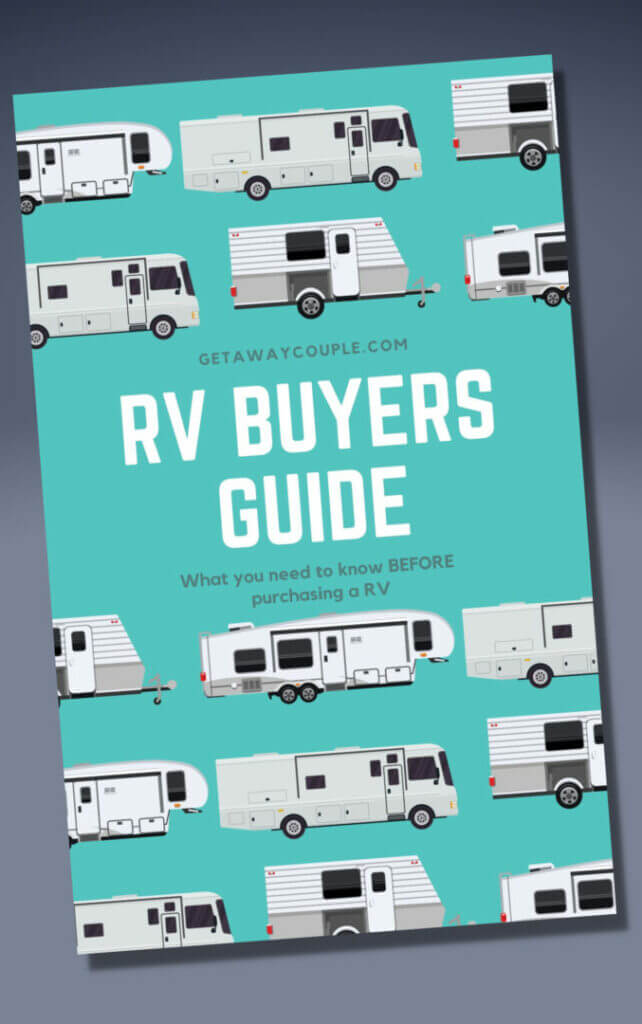
This valuable ebook will guide you step-by-step on how to purchase your first RV and save up to 30% off MSRP! Sign up for your FREE guide today!




